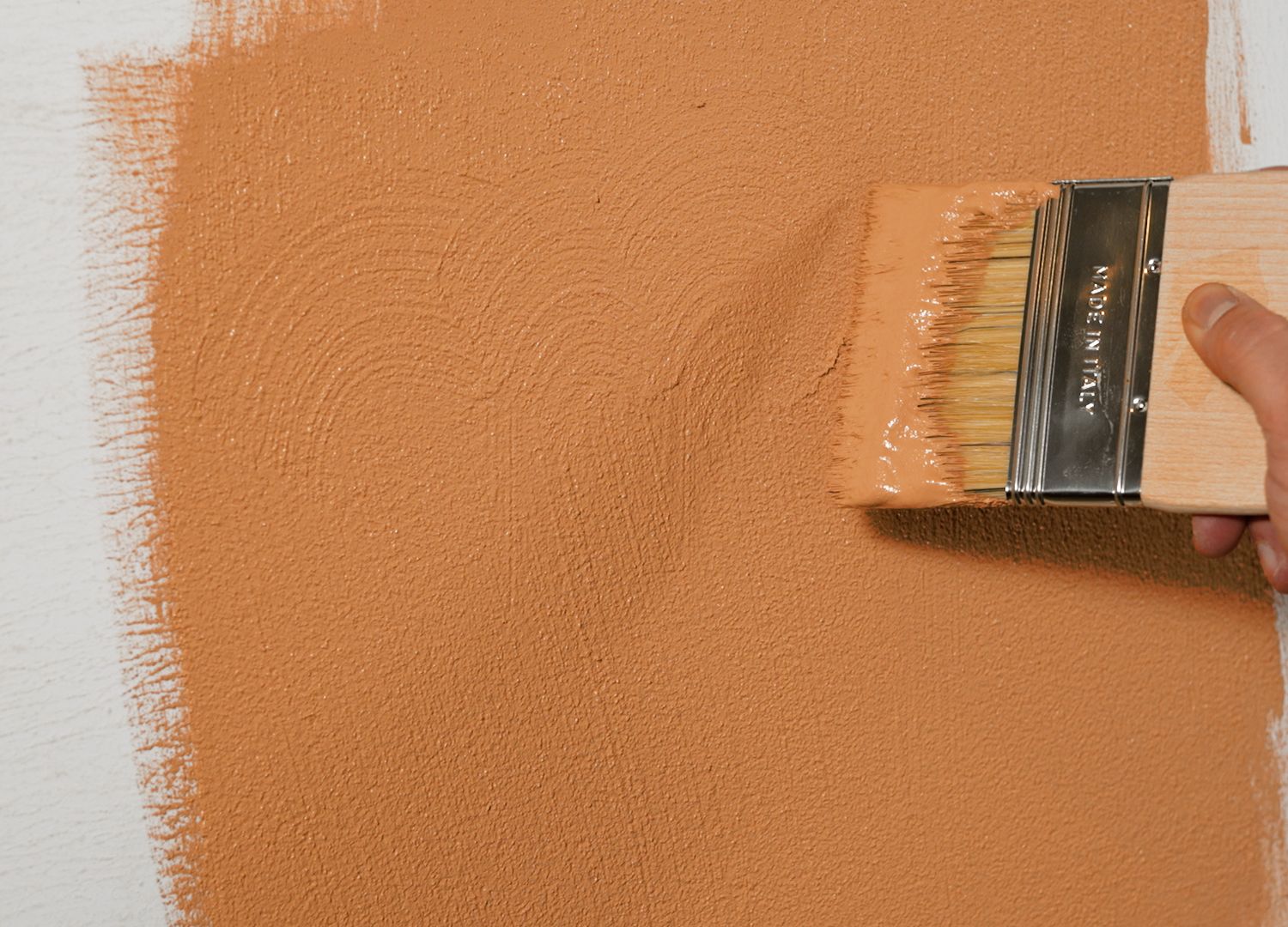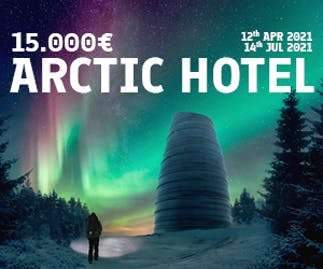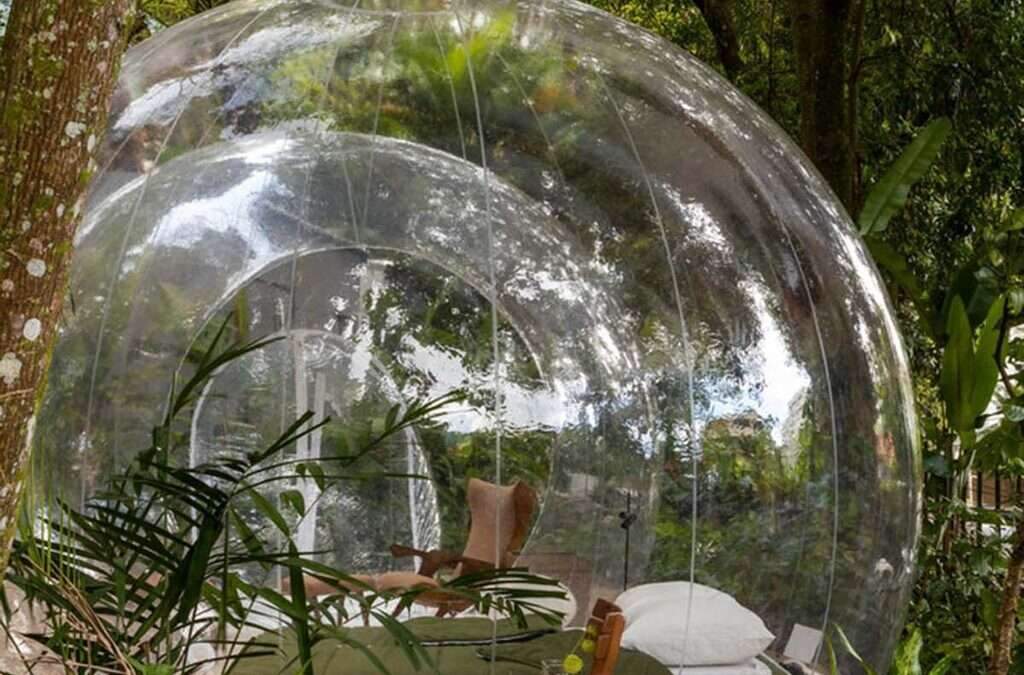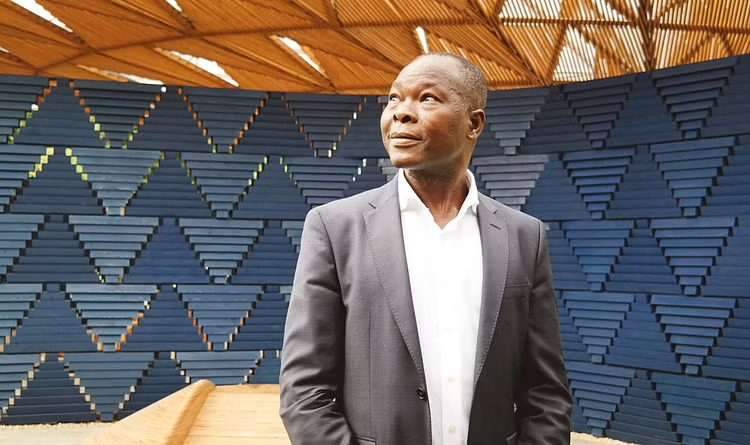Diasen and the cork revolution for a sustainable comfort
Diasen and the cork revolution for a sustainable comfort
At the fourth edition of Venice Innovation Design, hosted at the picturesque San Servolo location in Venice, we had the pleasure of discovering Diasen, a pioneering company specializing in sustainable materials derived from cork, awarded the VID 2023 prize for being the most innovative startup.
Diasen’s mission revolves around promoting sustainable comfort through its range of innovative bio-mortars and paints. These exceptional products not only enhance thermal well-being but also purify the air and effectively reduce noise discomfort. Diasen expertly combines design aesthetics with the fundamental requirements of comfort and protection, creating a harmonious balance that exceeds expectations.
Their commitment to sustainability and dedication to producing high-quality materials make Diasen a standout player in the industry, delivering innovative solutions that prioritize both the well-being of individuals and the environment.
We had the privilege of engaging in a conversation with Diego Mingarelli, the CEO of the company. We eagerly sought his expertise to gain a better understanding of the remarkable innovations they have pioneered and the benefits they bring.

What is the core philosophy of Diasen as a brand?
Diego Mingarelli:
“Our company is dedicated to improving people’s well-being and creating aesthetically pleasing environments. When we talk about “good,” we mean focusing on the central aspects of comfort, healthiness, and overall wellness. We have carefully identified the key elements that contribute to a high-quality living experience, such as eliminating mold, ensuring thermal and acoustic comfort, and enhancing safety.
To achieve this, we have developed a range of innovative products that go beyond traditional materials. These products incorporate cutting-edge technologies that prioritize comfort, well-being, and simplicity, making them integral to both architectural designs and everyday living spaces, ultimately enhancing the beauty of human life.
Furthermore, we believe that materials shouldn’t be passive elements. Instead, we take pride in their active role, drawing inspiration from their origin in the term “maternal” (maternal), which symbolizes the essence of creation. This perspective emphasizes the vitality and purposefulness of materials, moving away from the perception of them as lifeless and inactive objects. By embracing this holistic approach, we strive to create an engaging and enriching environment that fosters the well-being and happiness of individuals.

This encapsulates our vision: the pursuit of eco-friendly chemistry that benefits and enhances human well-being.
Sustainability is a cornerstone of our approach, encompassing both environmental consciousness and our commitment to a circular economy. We carefully select materials that align with tradition while minimizing resource consumption, placing sustainability at the forefront. These materials possess unique characteristics that contribute to our sustainability goals.
In addition to our environmental efforts, Diasen prioritizes social sustainability. Since 2017, we have stabilized and systematized connections with the territory, the local community, and the individuals working with us, following the attainment of B-Corp certification. Our adherence to recognized certification standards allows us to communicate our environmental and social sustainability endeavors to a global audience.”
How and why did you start working with cork?
Diego Mingarelli:
“We emerged as a spin-off from a solvent manufacturing company, but our journey took a fortunate turn towards embracing environmentally friendly practices. This sheds light on the profound transformation we underwent in reimagining the field of chemistry. My father, who had an agricultural background, led a company that produced solvents known to be harmful to both human health and the environment. However, drawing from his agricultural studies, he approached the task of reimagining these products with a fresh perspective.
Instead of approaching the challenge from a purely chemical standpoint, my father embarked on a path that sought to pioneer a greener direction. At the time, sustainability was a concept embraced by only a few pioneers. It was during this transformative period that his agricultural insights resonated deeply with us.

We often liken ourselves more to alchemists than chemists, as my father made the bold decision to blend seemingly opposing elements. For instance, he began experimenting by combining lightweight materials like a cork with binders, starting with cement as the initial test case. Over ten years, these experiments evolved into more environmentally conscious practices. This blending of disparate elements has become a fundamental part of our identity.
Cork has provided us with profound insights and invaluable lessons. Its admiration has deepened our understanding of the rich building traditions inherent in the Mediterranean region. The Mediterranean embodies a historical legacy of constructive knowledge and expertise in materials, which perfectly aligns with the emerging trends influenced by climate change.
Over the centuries, we have addressed challenges that will eventually affect countries across Northern Europe as well. In this context, cork has become a powerful teacher, imparting lessons on sustainability, circular economy practices, and pioneering approaches to modern living.”
On your website, you mention ‘chemistry at the service of mankind.’ What do you mean by that?
Diego Mingarelli:
“We adhere to three core principles: being green, being different, and being smart in terms of efficiency and solutions throughout our construction projects. These principles shape our unique approach and set us apart from others in the industry. When it comes to our chemical research, we do not simply follow existing literature. Instead, we adopt a creative mindset, more akin to chefs than chemists, carefully selecting and combining ingredients that go beyond conventional formulas.
Our commitment to being green and different goes beyond functionality. We strive to develop solutions that prioritize human well-being, integrating performance requirements that enhance comfort and overall quality of life. For example, when creating a paint coating, we ensure it not only offers visual appeal but also provides thermal benefits, all while reducing the reliance on traditional chemical components. This mindset extends to the materials we choose and even influences our approach to packaging.
Our comprehensive approach considers the entire lifecycle of a product, from its initial development to its final application. We constantly seek opportunities to incorporate additional elements into our materials, going beyond standard recipes and compounds, all to serve the needs of people and the environment.”

What are your main products and their applications?
Diego Mingarelli:
“Let me share two important lines that highlight our focus on cork. One of our product lines is called Diathonite, named after a compound that contains diatomaceous earth powder, which gave it its distinctive name.
The Diathonite embodies the essence of the Mediterranean and represents not only well-being but also a formula for overall health. It combines elements from the Mediterranean tradition, such as pumice stone, clay, hydraulic lime, and cork. This unique blend is designed to enhance various aspects of building well-being.
The Diathonite line offers thermal insulation for both interior and exterior applications. Additionally, its lightweight and porous structure enables it to effectively absorb sound, making it ideal for projects like metro stations, auditoriums, theaters, and other public spaces.
In addressing humidity concerns, cork plays a vital role. It acts as a natural insulator, helping to remove moisture from buildings while maintaining a warm and dry environment, thus promoting healthier indoor spaces and preventing mold growth. Furthermore, Diathonite products contribute to the structural integrity of masonry buildings, offering increased resistance during seismic events.
Overall, this Mediterranean-inspired formula encompasses the values of well-being, healthiness, and comfort, making it an excellent choice for a variety of architectural projects. All the products in the Diathonite line are applied by spraying, as they arrive in liquid form on the construction site. This allows us to create insulation on the surface of the structure, both on the interior and exterior, in both horizontal and vertical applications.
Our journey of working with cork has led us to our second product line:
Decork. During a research trip to study ancient Roman structures, particularly those made with a material called “cocciopesto,” we found inspiration in the concept of circular economy. This motivated us to explore the regeneration of cork and clay, resulting in our Decork products. This line focuses on decorative elements and design, catering to our international clientele.

One of our standout offerings is a decorative paint coating that goes beyond aesthetics. It combines technical prowess, such as providing better insulation for interior and exterior walls, with numerous well-being benefits. What sets it apart is the versatility it offers in terms of design possibilities. From showcasing the natural texture of cork to mimicking the appearance of stone or reimagining the traditional cocciopesto technique, we offer a range of visually stunning options. Instead of using ceramic residues, we incorporate cork powder residue, aligning with sustainable practices.
In essence, our approach represents a revitalization of the remarkable effects seen in the ancient Mediterranean-Roman heritage. Through a sustainable lens, we infuse creativity and design, ensuring not only performance and technical excellence but also enhancing the overall beauty of spaces.”
What advantages do they bring to the world of architecture and design? And most importantly, for the end user?
Diego Mingarelli:
“We are pioneering a market that is yet to be fully recognized by the end users. When people buy a house, they typically consider factors like location and aesthetics, while the materials used in the construction often receive less attention. We are determined to change this perspective by highlighting the significance of health, the absence of mold, and the quality of air, which are all measured and certified by our standards.
Additionally, ensuring fire resistance is another crucial aspect that contributes to both comfort and safety. To further educate and raise awareness, we have collaborated on a book called “Confort sostenibile” (Sustainable Comfort), published by Maggioli. I had the pleasure of co-authoring it with Professor Caterina Lucarelli, an expert in economics, and Professor Costanzo Di Perna, a specialist in technical physics.
This book presents extensive research that proves a well-explained concept of comfort can drive homebuyers to invest up to 30% more in a property. We aim to bridge the gap between the traditional focus on aesthetics and the emerging understanding of how materials significantly impact the creation of a healthy and comfortable living environment. By emphasizing these aspects, we hope to reshape the market and encourage individuals to prioritize not only the beauty of a home but also the quality and well-being it offers.”
Finally, Read more on Archup:






